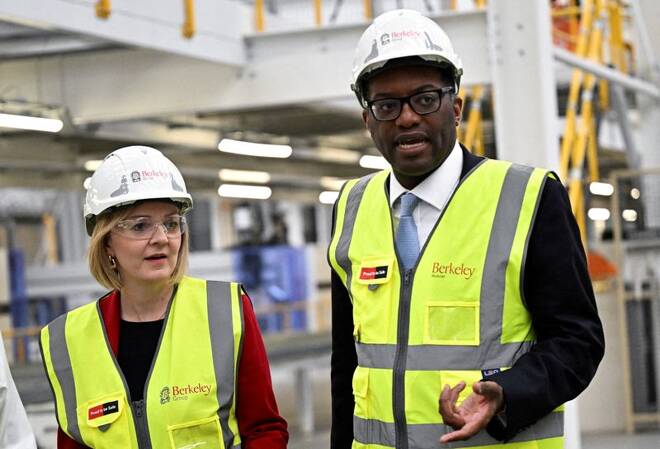Advertisement
Advertisement
UK’s Truss changes rules to cut red tape for more small firms
By:
LONDON (Reuters) - British Prime Minister Liz Truss said on Sunday she would allow more firms to define themselves as small businesses so they can avoid reporting requirements and other regulations in the future, part of her measures to spur economic growth.
LONDON (Reuters) – British Prime Minister Liz Truss said on Sunday she would allow more firms to define themselves as small businesses so they can avoid reporting requirements and other regulations in the future, part of her measures to spur economic growth.
Truss, in power for under a month, has pressed on with her economic package, including big tax cuts, despite criticism from some Conservative lawmakers and financial market turmoil which saw the pound hit a record low against the dollar last week.
At the beginning of her party’s annual conference, Truss announced plans to widen exemptions granted to small businesses to companies with fewer than 500 employees, widening the scope from the current limit of 250 workers, from Oct. 3.
“By raising the definition of a small business, in terms of regulation, from 250 to 500 employees, we will be releasing 40,000 more businesses from red tape,” she said in a statement.
“That will make it easier for them to get on with their business, in turn boosting our economy and creating more jobs to help get Britain moving. Higher economic growth means higher wages, better jobs, and more funding for our public services and NHS (National Health Service).”
(Reporting by Elizabeth Piper; Editing by William Schomberg)
About the Author
Reuterscontributor
Reuters, the news and media division of Thomson Reuters, is the world’s largest international multimedia news provider reaching more than one billion people every day. Reuters provides trusted business, financial, national, and international news to professionals via Thomson Reuters desktops, the world's media organizations, and directly to consumers at Reuters.com and via Reuters TV. Learn more about Thomson Reuters products:
Latest news and analysis
Advertisement
